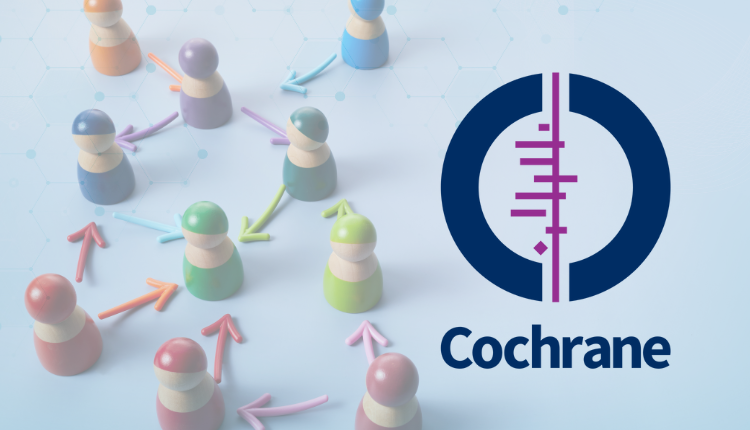In an age of information overload and scientific jargon, the quest for clarity and accessibility in healthcare and research has never been more critical. This is where Cochrane Collaboration, a global network of researchers, healthcare professionals, and patients, steps in with its plain language summaries (PLS). These concise and comprehensible summaries offer a bridge between complex scientific findings and the general public. In this article, we’ll explore the importance of an PLS, the role of Cochrane Collaboration in making research accessible, and the impact of these summaries on healthcare and beyond.
Bridging the Gap: The Need for PLS
The Cochrane Collaboration, named after British epidemiologist Archie Cochrane, was established in 1993 with a clear mission: to make healthcare research more understandable and accessible to all. In a world where cutting-edge medical discoveries and scientific studies often remain locked behind a wall of technical language and complex statistics, the need for clear, concise, and PLS’s is evident.
1. Access to Knowledge: The democratization of knowledge is a fundamental tenet of any progressive society. Healthcare decisions affect everyone, but not everyone is equipped to sift through dense medical literature or statistical analyses. PLS breaks down these barriers, ensuring that critical healthcare information is within reach of patients, caregivers, and the general public.
2. Informed Decision-Making: Informed decisions are at the core of patient-centered care. When individuals can understand the implications of a medical treatment or the efficacy of a particular intervention, they are better equipped to make choices that align with their values and preferences. PLS’s empower patients to participate actively in their healthcare decisions.
3. Bridge for Communication: Healthcare is a multidisciplinary field, and effective communication between researchers, healthcare providers, and patients is key. By simplifying complex medical jargon, a PLS fosters better communication and collaboration among these stakeholders. It serves as a common language that bridges the gap between experts and the public.
Cochrane Collaboration: A Beacon of Clarity
Cochrane Collaboration has been at the forefront of promoting transparency and accessibility in healthcare research. Their commitment to providing PLS’s alongside their systematic reviews and meta-analyses is a testament to their dedication to the cause.
1. Systematic Reviews: Cochrane Collaboration is renowned for its systematic reviews, which are comprehensive assessments of healthcare interventions. These reviews are often seen as the gold standard in evidence-based medicine. However, the wealth of information contained within them can be overwhelming for the non-expert. This is where PLS plays a crucial role. They distill the key findings and implications of these reviews into an easily digestible format.
2. Global Reach: Cochrane Collaboration’s impact extends worldwide. Their network of contributors spans across the globe, ensuring that research is conducted and disseminated with a global perspective. PLS are available in multiple languages, breaking down language barriers and ensuring that vital healthcare information is accessible to diverse populations.
3. Commitment to Patient Involvement: Cochrane Collaboration recognizes the importance of patient involvement in healthcare decisions and research. They actively engage with patients and caregivers to ensure that the content of the PLS aligns with the needs and interests of the end-users. This patient-centered approach adds an extra layer of relevance and applicability to the summaries.
Here’s the link for some guidance on writing a Cochrane PLS: https://training.cochrane.org/handbook/current/guidance-writing-cochrane-plain-language-summary.pdf
The Ripple Effect on Healthcare
The impact of the Cochrane PLS extends far beyond making research more understandable. Here are some of the ways these summaries have influenced the field of healthcare:
1. Enhanced Health Literacy: Health literacy, the ability to obtain, process, and understand healthcare information, is a critical component of health outcomes. PLS’s contribute to improved health literacy by providing clear and accessible information. As individuals become more health literate, they are better prepared to manage their health effectively.
2. Empowerment of Patients: Patients are no longer passive recipients of medical care. They are increasingly becoming active partners in their healthcare journey. PLS’s empower patients to ask informed questions, understand the risks and benefits of different treatment options, and actively participate in shared decision-making with their healthcare providers.
3. Improved Clinical Practice: Healthcare professionals benefit from PLS’s too. They can keep up with the latest research and integrate evidence-based practices into their clinical decision-making more effectively. This, in turn, enhances the quality of care provided to patients.
4. Reduction in Health Disparities: Access to healthcare information is not uniform across different demographics. Vulnerable and underserved populations often face disparities in healthcare knowledge and access. PLS can help reduce these disparities by making research more accessible to everyone, regardless of their educational background or socioeconomic status.
The Road Ahead
While the Cochrane PLS has made significant strides in making research more accessible, there is always room for improvement and expansion. The following areas can pave the way for an even more equitable and informed healthcare landscape:
1. Education and Awareness: Raising awareness about the existence and importance of PLS is key. Healthcare institutions, advocacy groups, and educational institutions should actively promote and teach the value of these summaries to both professionals and the general public.
2. Expanded Reach: While Cochrane Collaboration’s global network is impressive, there is potential for even broader dissemination. Collaborations with other research organizations, governmental agencies, and international health bodies can help reach more diverse populations.
3. Feedback and Iteration: Continual feedback from users, including patients and healthcare professionals, is crucial for refining and enhancing the content of PLS. The summaries should evolve with changing healthcare needs and preferences.
4. Incorporating Emerging Technologies: As technology advances, there are exciting opportunities to leverage artificial intelligence, natural language processing, and other digital tools to make an PLS even more engaging and interactive.
Conclusion
Cochrane Collaboration’s commitment to PLS represents a significant step towards democratizing knowledge in healthcare. In a world where the chasm between scientific research and the public is wide, these summaries serve as a vital bridge. They empower patients, educate healthcare providers, and promote the understanding of evidence-based practices.
As we move forward in the pursuit of equitable healthcare, it is crucial for organizations and individuals to recognize the value of PLS and actively advocate for their integration into research dissemination. By doing so, we can not only advance healthcare literacy but also foster a more inclusive and informed society where knowledge is truly accessible to all.
Contact us at services@ls.enago.com if you need any assistance with your PLS’s. In the next article, we will focus on journals and publishers who are the forefront of PLS!
Author:
 Dr. Anupama Kapadia
Dr. Anupama Kapadia
General Manager, Enago Life Sciences
Connect with Anupama on LinkedIn

